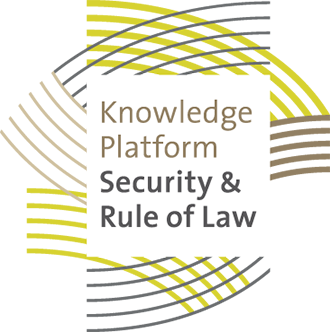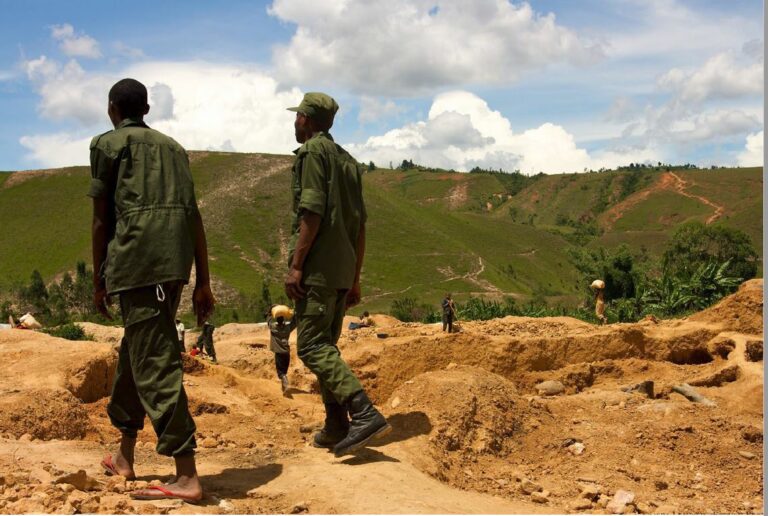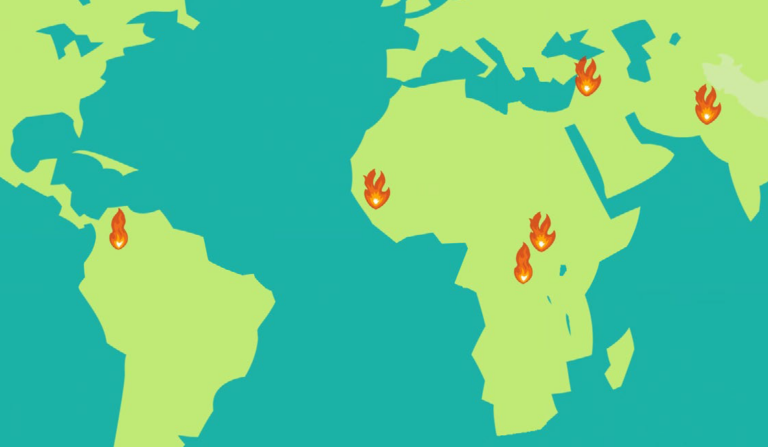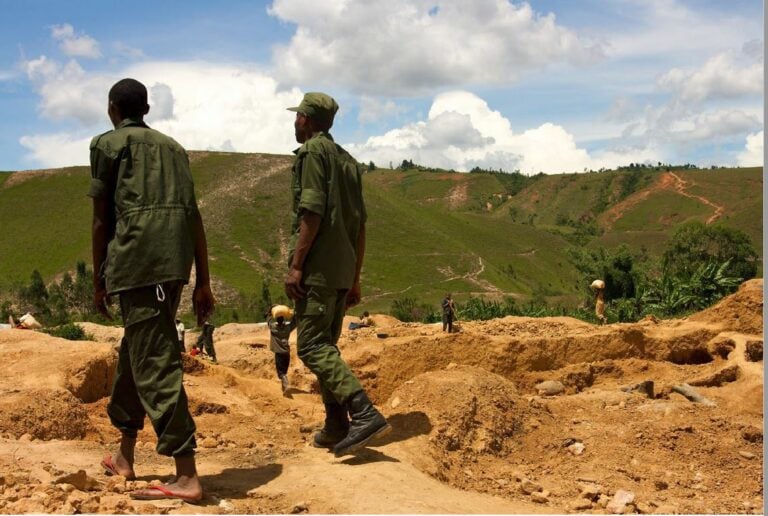
Academics, policymakers and practitioners join forces in meeting about private sector and conflict sensitivity
Research can provide insight into ‘the business case for peace’ and the ‘business case for conflict’. In the first case companies assign a positive economic value to peace and stability, whereas in the second case conflict is exacerbated by the presence of companies that take advantage of instability. However, too often research on the role of the private sector in fragile and conflict-affected situations does not trickle down to policymakers, civil society or the private sector itself, for that matter.
Facilitated by Anette Hoffmann of the Conflict Research Unit(opens in new window) at Clingendael Institute and hosted by the Knowledge Platform Security & Rule of Law(opens in new window) , a group of experts gathered on the 21st of May in The Hague to get a better understanding of the role of the private sector in fragile and conflict-affected situations. The aim was to determine the research gaps as experienced by practitioners; in addition we wanted to identify how practitioners and policymakers can best use existing research in order to change corporate behavior and increase conflict sensitivity by businesses. The expert meeting was organized by SOMO, Oxfam Novib(opens in new window) and Tilburg Law School(opens in new window) to bring together practitioners, policymakers and academics working in fragile states and interested in the role of the private sector in peace building. Around the table were people from various backgrounds: business and human rights, SME development, economy and peacebuilding, and criminology, among others. This created an interesting exchange of ideas and led to new connections.
Kicking off the meeting, Dirk-Jan Koch, the Dutch Special Envoy for Natural Resources, conveyed to the audience: “Take that money: do not hesitate to accept corporate funding because research can actually become better as a result.” However, he also made it very clear that corporate funding should only be accepted if the researchers can maintain their professional integrity and independence.
Key conclusions
Of course, money was not the only issue at hand. In three different working groups, people identified and discussed the existing research gaps. One of the key conclusions was that there is a need for research that provides factual, evidence based information. This research should focus on (1) the “business case for peace”, (2) the implementation of international standards in conflict-affected situations, and (3) the different interests within companies: who are the agents of change and how are HQ level policies trickling down to the field level?
Also, it became clear that better channels are needed to spread the information from the world of academics to the world of practitioners and policymakers. A lot of research seldom reaches the people that are actually involved: NGOs, who can use the research results in their lobby and advocacy; policymakers, who can use it to feed into better policies for private sector development in fragile states; and companies, who can improve their business policies and practices by learning from academic insights. According to Prof. Cees van Dam of the Rotterdam School of Management, it is all about framing your research results: “Not from the perspective of right or wrong, but as dilemmas, which is a safe perspective for business people to discuss issues.”
But even within the group of experts, opinions were divided on whether this would be sufficient to change the private sector. Some stated that there is a market for greenwashing of companies’ operations in conflict-affected areas, and that NGOs are being misused by companies, for example to legitimize their involvement in controversial practices. As some of the experts highlighted, there are also companies who are not out there to bring peace, but who actually see the “business case for conflict”. Hence the need for a better understanding of the circumstances under which companies are actually attracted to conflict to make a profit was identified.
“It is hard to talk to business people to get their perspective but it is important to do so”, said Prof. Cees van Dam at the concluding session of the expert meeting. In order to understand the business case for peace or conflict, researchers need to engage with companies, instead of taking an outsider perspective only.
More information
For more information, or to become involved in the follow-up to this meeting, please contact Joyce Kortlandt of Oxfam Novib (joyce.kortlandt@oxfamnovib.nl), Mark van Dorp of SOMO (m.van.dorp@somo.nl) and Nicola Jägers of Tilburg Law School (nicola.jagers@uvt.nl).
This article orginally appeared on the website of the Knowledge Platform Security & Rule of Law(opens in new window) .
Do you need more information?
-

Ilona Hartlief
Researcher
Partners
-
Tilburg Law School
Related content
-
 EU political agreement on conflict minerals risks allowing a deadly trade to continuePosted in category:NewsPublished on:
EU political agreement on conflict minerals risks allowing a deadly trade to continuePosted in category:NewsPublished on: -

-


